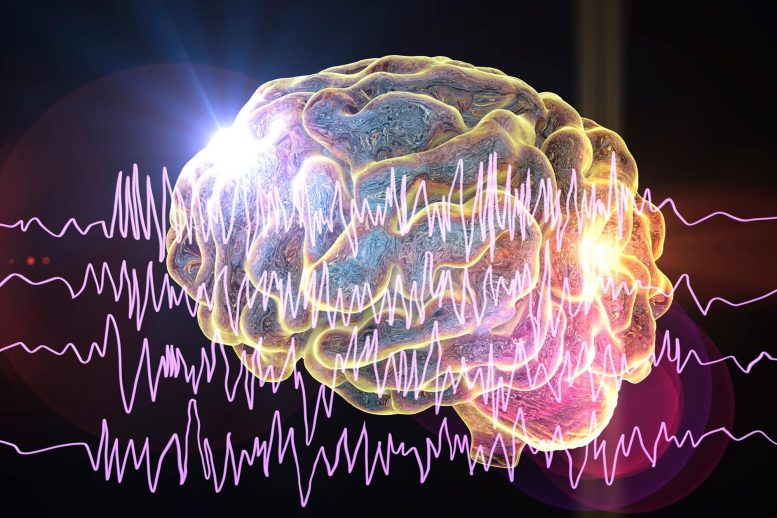
The human brain perceives the world not continuously, but in rapid snapshots.
Neuroscientists from the University of Glasgow have demonstrated that our brains experience the world in discrete snapshots determined by the cycles of brain rhythms. While studying a brain rhythm associated with visual cortex, they used a “simple trick” to affect and “reset” the oscillations of this rhythm.
It has long been suspected that humans do not experience the world continuously, but rather in rapid snapshots.
Now, researchers at the University of Glasgow have demonstrated this is indeed the case. Just as the body goes through a 24-hour sleep-wake cycle controlled by a circadian clock, brain function undergoes such cyclic activity – albeit at a much faster rate.
Professor Gregor Thut of the Institute of Neuroscience and Psychology, said: “Rhythms are intrinsic to biological systems. The circadian rhythm, with its very slow periodicity of sleep and wake cycles every 24 hours has an obvious, periodic effect on bodily functions.
“Brain oscillations – the recurrent neural activity that we see in the brain – also show periodicity but cycle at much faster speeds. What we wanted to know was whether brain function was affected in a cyclic manner by these rapid oscillations.”
The researchers studied a prominent brain rhythm associated with visual cortex functioning that cycles at a rate of 10 times per second (10Hz).
They used a ‘simple trick’ to affect the oscillations of this rhythm which was presenting a brief sound to ‘reset’ the oscillation.
Testing subsequent visual perception, by using transcranial magnetic stimulation of visual cortex, revealed a cyclic pattern at the very rapid rate of brain oscillations, in time with the underlying brainwaves.
Prof Thut said: “Rhythmicity, therefore, is indeed omnipresent not only in brain activity but also brain function. For perception, this means that despite experiencing the world as a continuum, we do not sample our world continuously but in discrete snapshots determined by the cycles of brain rhythms.”
The research is published in the journal Current Biology.
Reference: “Sounds Reset Rhythms of Visual Cortex and Corresponding Human Visual Perception” by Vincenzo Romei, Joachim Gross and Gregor Thut, 12 April 2012, Current Biology.
DOI: 10.1016/j.cub.2012.03.025









When one first looks at the second hand of a watch, there seems to be a delay before the second hand ticks to its next position. Does this snapshot effect account for this?
Visual cortex cycles at 10 times per second. Heart beats at cycles 72 times a minute. Sleep pattern follows in circadian rythms every 24 hours. So everything is periodic in the body. Hence, it is not surprising that brain oscillations reveal that they experience the world in snap shots. Thank You.
VedSomething similiar was talked about on Morgan freemans through the wormhole where they talked about time and how time was basically a series of snapshots being moved by evevents.This can be proved actually if you think bout what happens when you slow down time.These snapshots of realitgeslowed down….until it stops(time freezes), reality is just One snapshot.I think that time is governed by quantum events.If these events stops, time stops.If everyone in the World suddenly halts or freezes, the World could possibly keep going because of quantum things happening.If vice versa happened , the entire universe will stop.